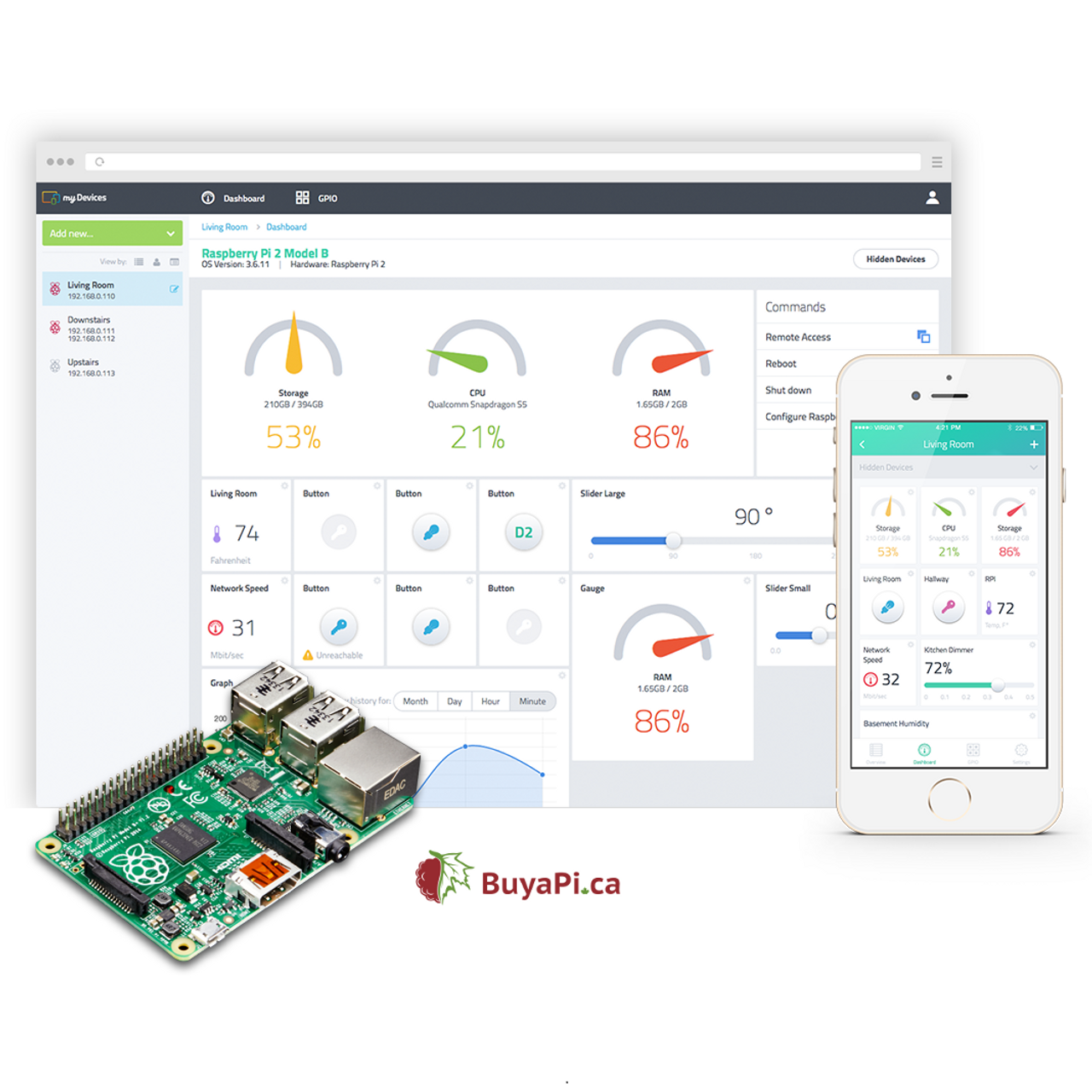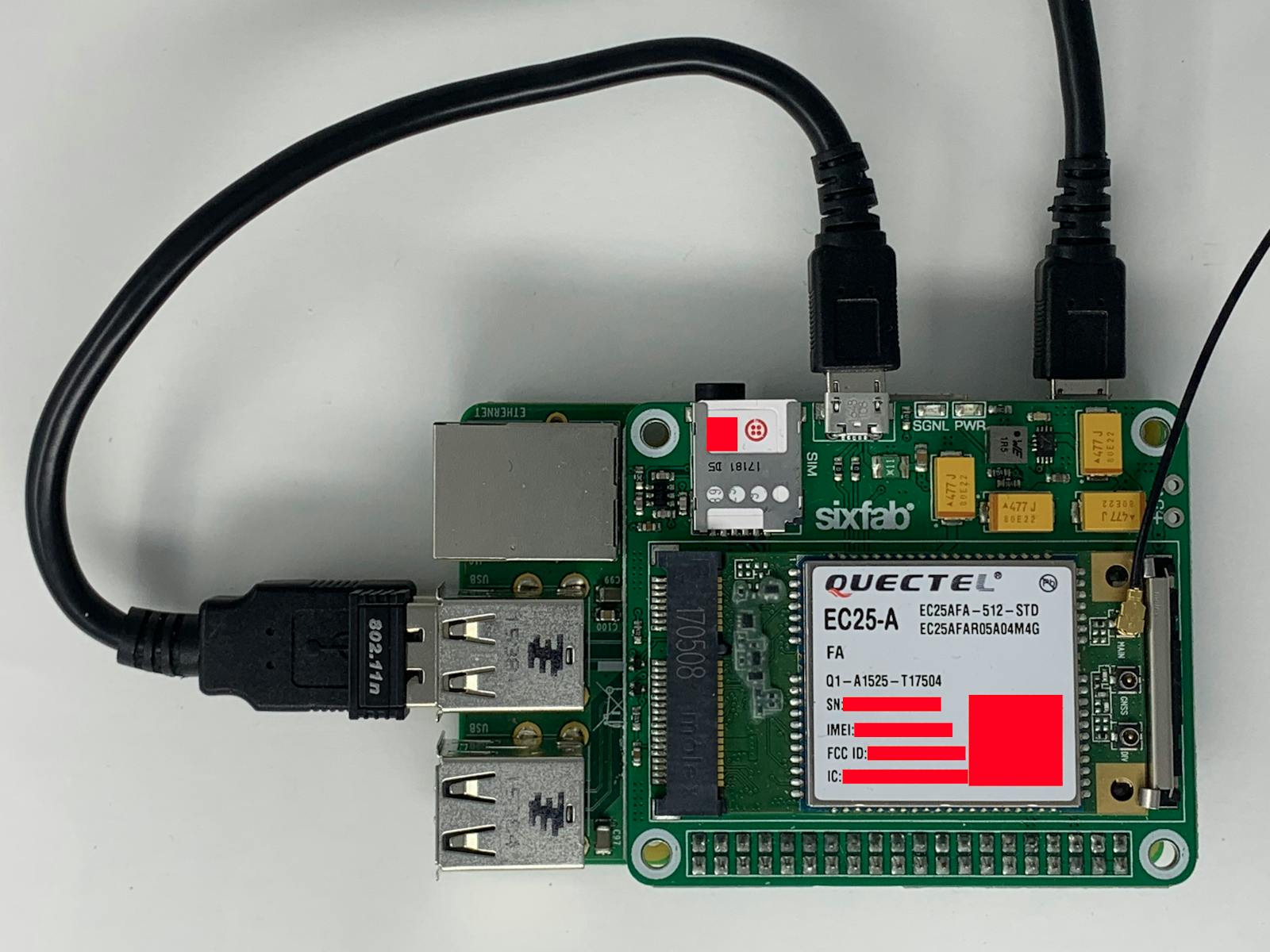Are you ready to transform your Raspberry Pi projects into remotely manageable powerhouses? The integration of Secure Shell (SSH) and the Internet of Things (IoT) is not just a trend; it's a paradigm shift, offering unparalleled control and security for your connected devices. This synergy empowers developers, hobbyists, and businesses alike to harness the full potential of their IoT endeavors, regardless of geographical constraints.
The digital landscape is teeming with possibilities, and at the heart of this evolution lies the Raspberry Pi. This compact, yet incredibly versatile, single-board computer has become the darling of the IoT community. Its affordability, coupled with its impressive processing capabilities, has made it the go-to platform for a myriad of projects, from home automation systems to sophisticated industrial control applications. However, to truly unlock its potential, pairing it with a robust SSH IoT platform is essential. SSH, or Secure Shell, guarantees secure communication between devices, making it a critical component for managing IoT projects remotely. This guide will walk you through everything you need to know about selecting the best SSH IoT platform for your Raspberry Pi, providing you with the knowledge to build secure and efficient IoT projects.
This article explores the best SSH IoT platforms tailored specifically for Raspberry Pi enthusiasts. We delve deep into the various options available, examining their features, benefits, and how they can be deployed to create powerful, remotely manageable IoT systems. The article delves into the top SSH IoT platforms available today, examining their features, benefits, and suitability for different use cases.
For IoT projects, SSH is the ultimate tool for reliable and secure remote management of Raspberry Pi devices. With the growing demand for IoT solutions, selecting the right SSH IoT platform for your Raspberry Pi can significantly impact your project's success.
Here's a summary of the key aspects we'll explore:
- Understanding SSH and its importance in IoT
- Exploring top SSH IoT platforms for Raspberry Pi
- Comparing features, benefits, and use cases
- Best practices for SSH key management
- Security considerations
Key Considerations in Choosing an SSH IoT Platform
Selecting the right SSH IoT platform involves careful consideration of several key factors:
There are several SSH web interfaces available for Raspberry Pi, each with its own set of features and benefits. This article will explore the best options and help you choose the one that best suits your needs.
By understanding these considerations, you can make smart decisions that align with your project goals.
1. Security Protocols
Security is paramount. Look for platforms that offer robust encryption and authentication methods to protect your devices from unauthorized access. SSH key authentication is a cornerstone of secure remote access.
2. Ease of Use
Consider the learning curve and user-friendliness of the platform. A simpler interface can save you valuable time and effort, especially if you're new to SSH and IoT.
3. Features and Functionality
Assess the features offered, such as remote access, file transfer, system monitoring, and remote command execution. Choose a platform that meets your specific project needs.
4. Compatibility
Ensure that the platform is fully compatible with your Raspberry Pi model and operating system. Consider support for different versions of Raspbian or other operating systems.
5. Cost
Evaluate the pricing models of the platform, including free and paid options. Consider your budget and the features you need before making a decision.
6. Community Support
A strong community can be invaluable when troubleshooting problems. Look for platforms with active forums, documentation, and readily available support resources.
We have explored the best SSH IoT platforms for Raspberry Pi, providing a detailed analysis of their features, benefits, and use cases. From balena to losant, each platform offers unique capabilities to help you build and manage secure IoT applications on Raspberry Pi. Let's dive in and discover the best SSH IoT platform for Raspberry Pi that meets your specific needs.
Heres a comparison of popular SSH IoT platforms:
| Platform | Key Features | Benefits | Use Cases |
|---|---|---|---|
| Balena | Containerization, over-the-air updates, device management | Simplified deployment, scalability, enhanced security | Commercial IoT deployments, fleet management |
| Losant | Data dashboards, workflows, device connectivity | Real-time data visualization, automation, rapid prototyping | Industrial IoT, smart building applications, remote monitoring |
| Remote.it | Secure remote access, device management | Easy setup, user-friendly interface | Remote access to Raspberry Pi devices, hobby projects, IoT |
| Resin.io (deprecated, but provides historical context) | Containerization, over-the-air updates | Simplified deployment, robust security, automation | Was a popular platform for commercial and educational IoT projects. Provides valuable context on platform evolution |
In this article, we'll explore the best free remote IoT platforms compatible with SSH keys for your Raspberry Pi, focusing on ease of use, security, and features.
By combining Raspberry Pi with SSH, you can create a powerful IoT device capable of handling complex tasks remotely. However, managing and monitoring these projects remotely requires a robust and secure platform.
This article delves into the top SSH IoT platforms available today, examining their features, benefits, and suitability for different use cases. This guide will give you the knowledge needed to select the ideal solution for your IoT projects.
Setting up SSH Keys
Setting up SSH keys is just the beginning. If you don't get prompted for a password, congratulations! You've successfully set up SSH keys on your Raspberry Pi.
Here are the steps to set up SSH keys for secure remote access:
- Generate SSH Key Pair: On your local machine (e.g., your laptop), generate a key pair using the `ssh-keygen` command. This creates a private key (kept secret) and a public key.
- Copy the Public Key to Your Raspberry Pi: Use the `ssh-copy-id` command to securely copy your public key to the Raspberry Pi. This adds your public key to the `authorized_keys` file on the Pi.
- Test the Connection: Try logging into your Raspberry Pi using the `ssh` command. If you are not prompted for a password, you have successfully set up SSH keys.
Best Practices for SSH Key Management
Good SSH key management is crucial for maintaining security and ensuring the long-term reliability of your IoT projects. Here are some essential best practices:
- Protect Your Private Key: Never share your private key. Store it securely, preferably with a strong passphrase.
- Use Key Passphrases: Always protect your private key with a passphrase. This adds an extra layer of security in case your key is compromised.
- Regularly Rotate Keys: Periodically generate new key pairs and update the authorized keys on your Raspberry Pi. This limits the impact of a potential key compromise.
- Disable Password Authentication: Once you have SSH keys set up, disable password authentication in your SSH configuration to further enhance security.
- Limit Key Access: Configure authorized keys with options that restrict their use (e.g., specifying allowed commands or IP addresses).
- Monitor SSH Logs: Regularly check your SSH logs for any suspicious activity, such as failed login attempts.
By combining Raspberry Pi with SSH, you can create a powerful IoT device capable of handling complex tasks remotely. For IoT projects, SSH is the ultimate tool for reliable and secure remote management of Raspberry Pi devices. Trust me, once you get the hang of it, youll wonder how you ever lived without it. Now it's time to test if everything is working correctly.
Changing the default SSH password is the first step in securing your Raspberry Pi. A Raspberry Pi comes with a default username pi and password raspberry for SSH access.
Here are some security considerations to keep in mind when using SSH for remote access to your IoT device:
1. Change the Default SSH Password
This is the most basic and crucial step. The default password for the `pi` user is "raspberry." Change this immediately to a strong, unique password.
2. Configure SSH Key Authentication
Enable SSH key authentication and disable password-based login. This prevents brute-force attacks and significantly enhances security.
3. Keep Your Software Updated
Regularly update your Raspberry Pi's operating system and software packages to patch security vulnerabilities.
4. Use a Firewall
Configure a firewall (e.g., `ufw`) to restrict access to your Raspberry Pi's SSH port (usually port 22) and other services.
5. Enable Two-Factor Authentication (Optional)
For enhanced security, consider enabling two-factor authentication (2FA) for SSH access.
6. Monitor System Logs
Regularly review your system logs for any suspicious activity, such as failed login attempts or unusual network traffic.
7. Use a Strong Password for the `pi` User
Create a strong and unique password for the default `pi` user account.
8. Update Your System
Keep your Raspberry Pi's operating system and software packages updated to the latest versions. This includes security patches.
9. Limit Access
Restrict access to your Raspberry Pi's SSH port (typically port 22) to trusted IP addresses or networks.
10. Disable Unnecessary Services
Disable any services or software packages that you don't need. This reduces the attack surface of your device.
Top SSH IoT Web Interfaces
Now it's time to test if everything is working correctly. There are several SSH web interfaces available for Raspberry Pi, each with its own set of features and benefits. In this section, well explore the best options and help you choose the one that best suits your needs. Here are some popular options:
| Web Interface | Key Features | Benefits |
|---|---|---|
| Webmin | Web-based system administration, SSH terminal, file manager | Comprehensive system management, user-friendly interface, free and open-source |
| Cockpit | Web-based server management, system monitoring, SSH terminal | Easy-to-use interface, real-time monitoring, container support |
| Shell in a Box | Web-based SSH terminal | Simple and lightweight, easy to set up, secure |
| Remote.it | Secure remote access, device management | Easy setup, user-friendly interface |
By exploring various platforms, their compatibility with Raspberry Pi, and their security features, we aim to provide you with the knowledge needed to select the ideal solution for your IoT projects. Open the terminal of your Raspberry Pi or access your Raspberry Pi with SSH on the local network and install the remoteiot service. Now, open the remoteiot portal in your browser and login to the dashboard. You should now see your Raspberry Pi in the list of account devices. Click connect port and select the. To wrap it up, choosing the best remote IoT platform that supports SSH key authentication for your Raspberry Pi is key to building secure and efficient IoT projects. By understanding the features, benefits, and best practices of these platforms, you can make smart decisions that align with your project goals.
This article delves into the top SSH IoT platforms available today, examining their features, benefits, and suitability for different use cases. By exploring various platforms, their compatibility with Raspberry Pi, and their security features, we aim to provide you with the knowledge needed to select the ideal solution for your IoT projects. Let's dive in and discover the best SSH IoT platform for Raspberry Pi that meets your specific needs.
From Balena to Losant, each platform offers unique capabilities to help you build and manage secure IoT applications on Raspberry Pi.
The integration of Secure Shell (SSH) and the Internet of Things (IoT) is not just a trend; it's a paradigm shift, offering unparalleled control and security for your connected devices.


